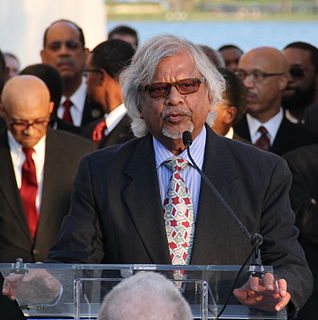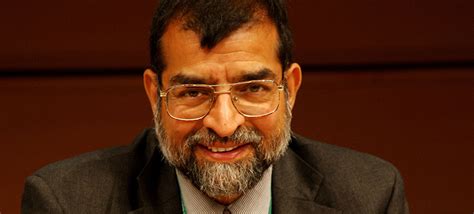A Quote by Juan Manuel Santos
Anybody who doesn't see the impact of climate change is really, I would say, myopic. They don't see the reality. It's so evident that we are destroying Mother Earth. This is not the problem of one country or a few countries: it is the problem of mankind. We need to work together to stop this. Otherwise, our future generations will simply disappear.
Quote Topics
Change
Future
Anybody
Climate
Climate Change
Countries
Country
Destroying
Disappear
Earth
Evident
Few
Future Generation
Future Generations
Generations
Impact
Mankind
Mother
Mother Earth
Myopic
Need
One Country
Otherwise
Our
Our Future
Problem
Reality
Really
Say
See
Simply
Stop
Together
Will
Work
Work Together
Would
Related Quotes
When you start looking at a problem and it seems really simple, you don't really understand the complexity of the problem. Then you get into the problem, and you see that it's really complicated, and you come up with all these convoluted solutions. That's sort of the middle, and that's where most people stop... But the really great person will keep on going and find the key, the underlying principle of the problem - and come up with an elegant, really beautiful solution that works.
Everywhere we turn, we see violence and hate and prejudice and anger and all of these negative emotions that are destroying humanity. And we have to wake up and take note of this and try to change our course, so that we can create a world of peace and harmony where future generations can live happily together.
Considering that future generations will be far better off than current generations even after accounting for climate change, it would be more equitable for today's industrialized world to help solve the real problems facing today's poorer developing world than to mitigate climate change now to help reduce the burden on future populations that would not only be wealthier but also technologically superior.
I am surprised that in various countries, whether it's the U.K. or the U.S., you see isolationist tendencies that would tend to work against the co-operation, whether it's climate change, immigration, innovation, helping the very poorest. Those are things where you want to think across country boundaries and see a win-win-type solution.
If we want to impact hundreds - or millions - of people, we have to do things differently. If we look at the problem as an infrastructural problem, we cannot make an impact because it requires a lot of effort. But when we convert this problem into a knowledge problem, suddenly the problem is manageable.

































